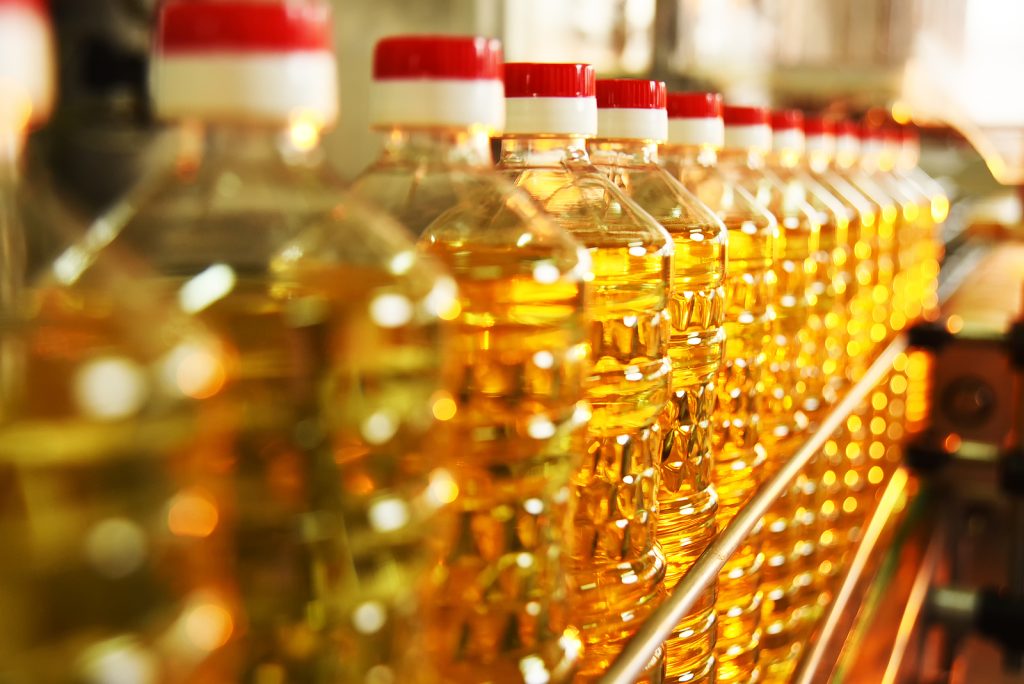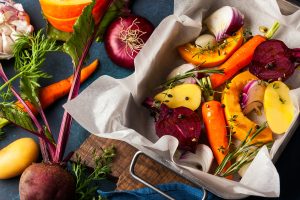Vegetable oil is an extremely common cooking ingredient. It’s used for a variety of cooking methods, including frying, baking, roasting and sauteing, to name just a few. But just because it’s a common cooking oil doesn’t mean it’s the healthiest oil on the market…or is it? In this article, we’ll be delving a little deeper into the nutrition and health benefits of vegetable oil. We will also touch on the types of vegetables that can be used to create such a product. Let’s take a closer look at what this particular oil is and whether or not it’s a nutritious option.
What is vegetable oil?
Vegetable oil is an extremely broad term. It’s used to reference cooking oils that are derived from seeds, nuts or fruits. It encompasses a variety of oils derived from plant sources, essentially. We’re going to go into those sources in more detail. This is to give you more of an idea of what the oil can include and its derivatives. Their derivatives will dictate how healthy they are. They will also play a part in the cooking methods you use and the flavour you get out of it. So, what sources can vegetable oil be derived from, mainly? Let’s delve a little deeper:
- Soybeans
- Rapeseed
- Sunflower seeds
- Safflower seeds
- Corn
- Palm fruits
How is vegetable oil produced?
Vegetable oil is produced as a result of a multi-stage process. Depending on the vegetable used to produce the oil, it first involves the harvesting of plant seeds, fruits or nuts. Once the harvesting of the aforementioned has taken place, the oil-containing elements are cleaned, dried and subjected to mechanical pressing.
Although extraction methods are used to extract the crude oil, which is then refined. This will involve processes like degumming, neutralising, bleaching and deodorising in order to remove its flavour. Despite this, those processes can also enhance the vegetable oil’s stability and appearance.
How nutritious is vegetable oil?
According to BRF Ingredients, vegetable oil is unsaturated, meaning it doesn’t have any LDL cholesterol (bad cholesterol). As a cooking oil rich in essential fatty acids, such as omega 3 and 6, it means that this particular oil comes with a range of health benefits that other cooking oil types might not possess. The same source has detailed some health benefits of using vegetable oil to cook your favourite dishes. So, what nutritious value does this oil hold, and how healthy is it, really? Let’s take a closer look:
- It improves cardiovascular health – by reducing the amount of LDL (bad cholesterol) you’re consuming (which can be done by using vegetable oil, for instance), you’re improving your cardiovascular health
- It contains antioxidants and anti-inflammatory properties – this oil is high in vitamins and essential fatty acids, including vitamins A, D, E and K, and omega 3 and 6. These can act as antioxidants and anti-inflammatories, therefore combating free radicals and protecting the body against heart disease, for instance
- It’s a great energy source – vegetable oils are more energy-dense than some proteins and carbohydrates, therefore making them a great alternative for other cooking methods and oils
- It’s an ideal alternative for saturated fats and trans fats – you can swap out the saturated fats and trans fats that you use to cook with for vegetable oil, which is unsaturated and, therefore, healthier when it comes to whipping up your favourite meals
- It has a better absorption of nutrients fat-soluble – vegetable oil helps to improve the efficiency and speed at which fat-soluble vitamins are absorbed. Those vitamins can include A, D, E and K
What can vegetable oil be used for?
Vegetable oil is a common cooking oil. It’s used in kitchens all over the world for a wide range of cooking methods. But what can it be used for in the kitchen? Due to its high smoke point and neutral flavour, it can always be counted upon to cook up even the most complex of dishes. Here are some uses for vegetable oil that you should try in the kitchen today:
- High-heat cooking – it has a high smoke point, making it ideal for frying and sauteing food, all without burning or charring the food you’re cooking
- Baking – it is often used to bake cakes, cookies and other baked goods. It helps to add moisture and tenderness whilst also promoting non-stick properties, allowing the baked goods to be removed from pans and trays effortlessly
- Dressing and marinades – its neutral flavour means that vegetable oil is a prime choice for making your own salad dressings, dipping oils and marinades. It allows you the scope to add your own spices and herbs, making it a great choice for any budding chef looking to make a splash
Cater Oils is pleased to provide a waste cooking oil collection service, giving you either a credit note or a fresh supply of cooking oil in exchange. As well as being able to collect used cooking oil, we can also supply you with fresh cooking oil, including vegetable oil, sunflower oil, olive oil, pomace oil and rapeseed oil. If you would like further information about our used cooking oil collection service, get in touch with a member of our friendly, knowledgeable team today – we’re always happy to hear from you.






